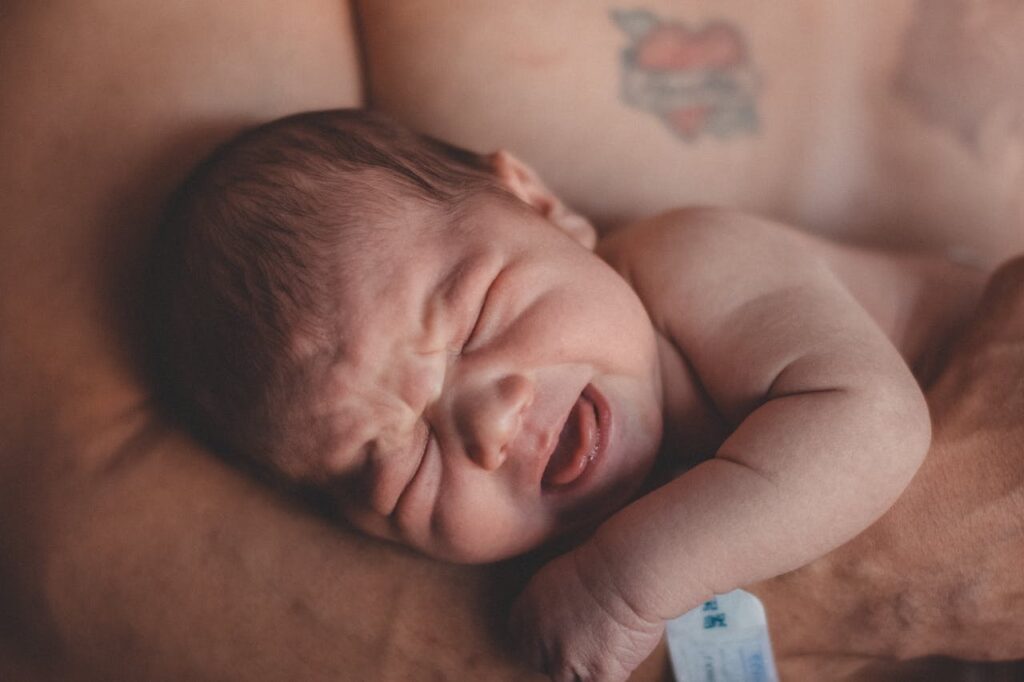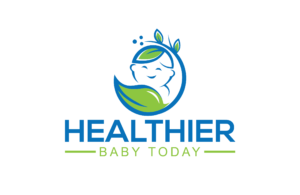Postpartum rage doesn’t have an exact time for when it will disappear. It depends on the intensity of your condition and how well you respond to your treatment. One thing is for sure – postpartum mental health conditions are short-term. If you want to know more, this article delves into it all so that moms can reclaim their balance. Let’s start!
Table of Contents
Understanding Postpartum Rage

Postpartum rage (sometimes called postpartum anger) is a mood disorder that causes extreme anger, aggression and anxiety weeks and months after you give birth. Studies have shown that postpartum anger can clash with other postpartum conditions like postpartum anxiety and postpartum depression.
What is Postpartum Rage?
Postpartum rage is when you feel anger and frustration or lose your temper quickly after giving birth. Changes in hormone levels are one of the leading bases. Lifestyle changes, changes to your body and other emotions play a significant role. Prescribed medication and counselling can treat it.
Symptoms and Triggers
Unlike other common postpartum mental conditions like depression or anxiety, the key symptom of postpartum rage is anger. With depression, a person is likely sad or starts to cry. With anxiety, a person is more likely to become anxious or worried. However, these symptoms can all happen. This means you can experience all the symptoms all at once.
Symptoms of postpartum rage vary. Some of the common symptoms include:
- Lashing out or “flipping out” when you usually would not.
- Feeling the need to scream at others.
- Slamming doors or punching objects.
- Overthinking a situation or event for longer than you usually would.
- Losing control of your temperament.
- Swearing, screaming or yelling more than usual.
- Being extremely irritable, frustrated or “on edge.”
- Feeling unable to cope with your emotions.
The Connection Between Hormones and Mood
Hormonal causes include abnormal estrogen levels, progesterone, thyroid hormones, and cortisol. If a person experiences mood changes before their menstrual cycle, during pregnancy, after childbirth, or in perimenopause, hormones may be the cause of those changes.
The Impact of Headaches on New Moms

The dip in estrogen in the weeks after having your baby can cause headaches. This is especially the case with migraines, which are sensitive to hormone fluctuations.
Common Types of Postpartum Headaches
The typical cause of a headache in your postpartum period is an increase in primary headache syndrome, such as cluster, migraine and tension headaches.
Triggers and Contributing Factors
Several factors can influence postpartum headaches. The most common contributors are medication, alcohol (particularly red wine) and excessive caffeine intake. However, the environment can also play a role. Stress, bright lights or strong smells, changes in the weather, and sleep issues can cause these headaches.
Additionally, things like keeping meals or consuming things like processed products or aged cheese may cause postpartum headaches.
The Importance of Managing Headaches
Most moms can manage postpartum headaches at home, but in some cases, treatment is needed. Sometimes, headaches are a warning sign of a rare but serious medical emergency called postpartum preeclampsia. Symptoms include a severe (usually throbbing) headache and vision changes that typically start within 48 hours of giving birth. If you notice any of these symptoms, seek immediate help.
The Role of Exercise in Recovery
Postnatal exercise is not just about getting back in shape; it’s about restoring your strength and strengthening your body. It’s a natural energy booster that can help you feel less tired and more vibrant.
Benefits of Exercise for Emotional and Physical Health
The following are familiar psychological benefits that are gained through exercise:
- Raise your mood
- Reduced stress as well as a boosted ability to cope with stress
- Improved self-esteem
- Pride in physical achievements
- Increased satisfaction with yourself
- Boost your body image
- Increased feelings of energy
- Boost confidence in your energy
- Reduced symptoms associated with depression
How Exercise Can Alleviate Postpartum Symptoms
Regular exercise can promote weight loss, particularly when combined with reduced calorie intake. It can also improve cardiac fitness and strengthen and tone abdominal muscles.
Recommended Exercises for New Moms

No matter how fit you were before and even during pregnancy, postpartum exercise presents a unique set of challenges. Your body is still healing from delivery, and with a newborn in the house, you might be feeling more tired than ever. But finding time to fit in fitness is impressive for both your body and mind – it can be just what you need to get back to feeling like your pre-pregnancy self.
Gentle Stretching and Yoga
Are you a new mother seeking to reclaim, reconnect with, and energize your body after childbirth? These five poses can bring a profound sense of peace and tranquillity:
- Plank Vinyasa
- Locust Pose
- Pelvic Tilts
- Legs Wide Pose
- Scissors
Strength Training
Strength training is a vital part of an overall fitness program. Here are a few suggestions for postpartum mothers:
- Glute bridge
- Walking lunges
- Plank
- Belly breathing
- Knee push-ups
- Pelvic tilt, etc
Cardiovascular Activities
Listed below are some of the most suggested cardiovascular activities for postpartum moms.
- Kegel exercises
- Swimming
- Walking
- Bike riding
- Jogging
- Gentle strength training
- Low impact cardio
- Yoga, etc
Creating a Consistent Exercise Routine
If you had a healthy pregnancy and delivery, you can start working out when you feel ready. For some women, this may be as soon as a week after giving birth. But it’s perfectly normal if you need to rest a bit longer! When you head back to the gym or hit the trails for a walk, aim to stay active by engaging in low-impact aerobic activity for 20 to 30 minutes daily. Add 10 minutes of simple postpartum exercises that help strengthen your abdominal muscles and other major muscle groups, such as your legs, glutes, and back. If 20 minutes is too long, scale back to 10 to 15 minutes twice daily. For example, go for a 15-minute walk in the morning, followed by 10 minutes of gentle yoga or abdominal strengthening exercises at night. You can add time or intensity as you get stronger and your body feels better.
Mindfulness and Relaxation Techniques
If negative thoughts arise, sit down, take a deep breath, and close your eyes. Focus on breathing techniques as it moves in and out of your body. Even sitting and breathing for a minute can help. It’s hard to slow down and notice things in a busy world.
When to Seek Professional Help

Seek help from your healthcare provider if you have intense anger issues or feel like you have no control over your temper; that is a clear sign of postpartum rage. Feeling a range of emotions after giving birth is normal, and you shouldn’t feel ashamed to ask for help or to see a healthcare provider. This is how you get better!
Conclusion
Rage is an intense feeling of anger. Feeling irritable, annoyed and angry in the days after giving birth can be a symptom of postpartum rage. If you get angry over small things or want to scream or punch something, please contact your healthcare provider for help. It’s normal to have widespread emotions after you change your life with a new baby. It’s a huge change that can be overwhelming.
Remember, emotions disappear, and treatment is available to help you return to normal. Focus on your health and getting better, mama!


